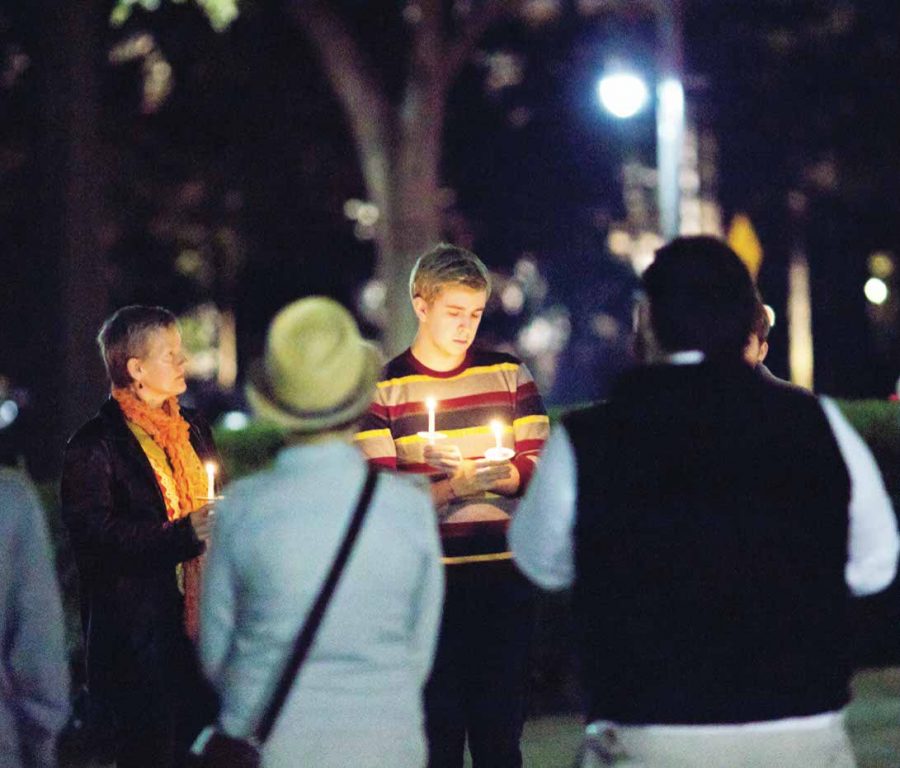Roughly 40 people gathered in front of Denny Chimes Wednesday night as part of Transgender Day of Remembrance. The crowd held candles in a circle as representatives from Spectrum, The University of Alabama’s LGBTQ student organization and the UA Safe Zone read a list of 238 transgender people who have died because of their gender identity in the past year.
“It’s one of the more solemn events Spectrum holds at the Capstone,” said Spectrum member Spencer Cornelius, a sophomore majoring in communication studies. “We bring out the often-violent deaths of trans people and tell their stories.”
Before volunteers read poems and shared stories about transgender people, Cornelius said it is important to recognize victims of transphobic violence because their stories are often covered up.
“Storytelling is of the utmost importance to the way we take charge of our world,” Cornelius said. “The stories themselves are almost done violence to by not being told or being hidden by the families of the victims.”
Kaylyn Johnson, Spectrum’s president, read half of the list of transgender deaths and said the list was incomplete because there is no way of knowing how many go unreported.
“The police often don’t investigate these incidents as a hate crime,” Johnson said. “They don’t use the name of choice or their gender, and instead use their birth name and identity.”
The list included many victims who went unnamed, and a large portion came from Mexico and Central and South America.
Chris Brummond, a senior majoring in international relations, said this trend does not come up because of the violence in those areas, but instead because they are more recognized when violence does occur.
“There’s a democracy for trans people and they’re recognizing trans issues in Central and South America,” Brummond said. “Whereas in other places, there’s very little democracy and [victims] might not end up on the list.”
Sarah Young, a Safe Zone graduate assistant, read the other half of the list and closed the event by thanking everyone for supporting awareness of transgender people. She said whenever a candle went out in the circle, the holder’s neighbor would light it again with their own flame.
“I think the flame represents the work we have to do as a community, [and] what brought us here tonight,” Young said. “Just like the candles being protected, by protecting trans people we can help them have the safety they need and the education they’re paying for.”









